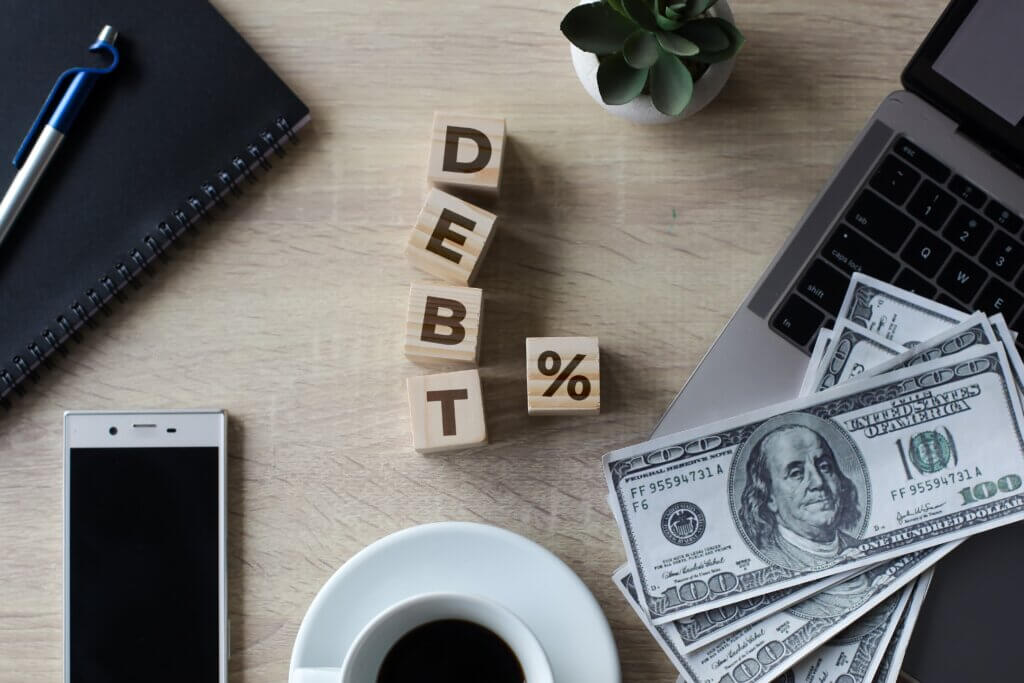
Many embark on the entrepreneurship journey each year, taking their dreams and turning them into reality. Being a new business owner is complex, and according to the Bureau of Labor Statistics (BLS), only 25% of those new businesses make it to 15 years or more. Sometimes, companies will go through rough times due to external issues beyond the business owner’s control.
When financial issues arise, business owners must assess the best way to deal with them. For some struggling businesses, the best option is bankruptcy. Bankruptcy can be a good choice for business owners because it affords them different ways to handle money problems. There are several bankruptcy chapters to choose from; each forgives or helps one repay debt in a different manner.
What Type of Business Owner Are You?
Choosing the right bankruptcy for your situation depends on what type of business owner you are. Bankruptcies aren’t ‘one size fits all.’ Instead, a person must choose a chapter that fits the needs of the business structure. Types of business owners include:
- Sole Proprietor: This is a person who owns an unincorporated business. This person is solely responsible for the losses and debts of the company. The business is not a separate entity from the business owner.
- Partnership: This is a business that two or more people run. Each person contributes to property, labor, money, and skill. Any gains or losses in the business are shared among the partners per the terms of their partnership agreement. This business model can also include a silent partner, which means the person isn’t participating in the daily operations needed to run the business.
- Corporation: This is a business that shareholders own. These shareholders will exchange money, property, or sometimes both for the corporation’s capital stock. They also can select people to manage the organization’s activities. Those selected serve on the board of directors.
- Limited Liability Company: These are also referred to as LLCs. These structures combine elements of a corporation and sole proprietorship. It allows the owner to be protected from the responsibility of certain debts and liabilities.
Defining your business structure will help you determine the best bankruptcy to solve your financial issues. But, again, sitting down with a legal expert is a good idea because an attorney can evaluate your specific situation and make recommendations that are best suited to your needs and goals.
How Does Chapter 7 Affect Business?
Chapter 7 is a liquidation bankruptcy. In this chapter, the individual’s assets are used to pay back creditors. If a person is unable to pay off debt, this is a good option to discharge the eligible debt. To qualify, a person must pass the “means test.” This will gauge if a person truly can’t repay their debt.
Both people and businesses can file this chapter, but because this liquidates the assets, there may be better options for people that want to hold on to assets like a closely held business. Filing chapter 7 is a good option for people that want to dissolve the business and move on. It is also suitable for sole proprietor business owners. This allows for the business and personal debt to be discharged in a single action.
The good news is that chapter 7 will have exemptions on what property could be protected. Necessities, such as a person’s home and car, are considered during the process. If the business requires a limited amount of non-exempt equipment, the owner could potentially continue running the company even through liquidation.
How Does Chapter 13 Affect Business?
Chapter 13 is a “wage earners” plan. The goal of chapter 13 is to give a person or business the chance to repay their debt. This will be done over three to five years. Because the business owner will be in a repayment plan and will ultimately repay most or all of their outstanding debt, that person has more freedom to keep their assets, which is good if the person needs equipment to continue to operate a business. Keeping up with payments is a must. Failure to pay can result in collectors taking property. When the repayment plan’s time frame is up, eligible debts can be discharged if all debts haven’t been paid.
The repayment plan will consider the debtor’s needs and develop a reasonable plan to follow throughout the years. Eligibility for chapter 13 is determined by the amount of debt. Both secured and unsecured debt can’t exceed a certain amount. Another requirement is people cannot have filed for chapter 7 in the past four years or chapter 13 in the past two years.
Chapter 13 will change depending on the owner’s business model. Personal and business debts are lumped together if the person is a sole proprietor. The monthly payments will be distributed among the creditors, and property debts will be paid first.
If the business model is a separate entity, such as a corporation or LLC, then the business is responsible for paying its debt through the repayment plan. The business owner’s personal debt will not be included in the repayment plan and would need to be addressed in a separate filing. However, the business is still liable for repaying the debt to creditors. They will accomplish this through the repayment plan.
How Does Chapter 11 Affect Business?
Chapter 11 is often referred to as “reorganization bankruptcy.” Like chapter 13, it gives the business a chance to repay its debts over a period of time. This would be the next option for people who need help meeting the requirements for chapter 13. There is no limitation on the amount someone makes or the amount of debt they have in chapter 11. This plan will include how the business will pay back the creditors while still in business. Sometimes a business will be able to downsize and reduce expenses to pay back the creditors. Big companies use chapter 11 to help with their financial struggles at the time. Recently, both Party City and Forma Brands have filed for chapter 11.
Chapter 11 can be expensive and complicated for businesses, particularly small businesses. Because of this, two variations specifically fit the needs of small businesses. The two subcategories are small business cases, created in 2005, and subchapter V created in 2019. Both of these were made to reduce costs and streamline the process. These plans will have accelerated deadlines. In both of these variations, there are fewer administrative burdens and lower costs. In subchapter V, there are no creditors committees, disclosure statements, competing plans, or absolute priority rules – all of which are standard in chapter 11. The two types of programs have different debt limits that one must meet to be eligible.
| Subchapter 11 | Debt Limits |
| Small business case | total secured and unsecured debts of $3,024,725 or less |
| Subchapter V | total secured and unsecured debts of $7,500,000 or less |
It is wise to consult which chapter 11 options would be best for your particular situation. A lawyer will be able to go over all the details with you, explain the outcomes, and advise which might be the best option for your business.
How Does Chapter 12 Affect Business?
There are many farms around the country, and about 2.6 million people are farmers. For these people, their business is farming. The government has carved out a special bankruptcy just for them. Chapter 12 was created to help out family farms and family fishing operations.
Under this plan, a debtor will make a repayment plan and make installments to creditors. Usually, this plan can last between three to five years. This chapter is also more affordable to meet the needs of those eligible to file-. However, a person will need a regular income for this bankruptcy. People who file will fall under two categories.
- Individuals or individuals with a spouses
- Corporation or partnership
To find out more about this option, visit the federal government’s website here. An experienced attorney can help you determine what is the best option for your particular situation.
How We Can Help
Whether you are a sole proprietor, partnership, LLC, or corporation, it is important to seek an experienced attorney to help steer you in the right direction. The bankruptcy process can be complex, and it takes some time to figure out the best approach for a business. Our attorneys at Rosenblum Law are well-versed in this aspect of the law, and are available to advise you on the best way to handle bankruptcy for your business. Contact us today for a free consultation.


